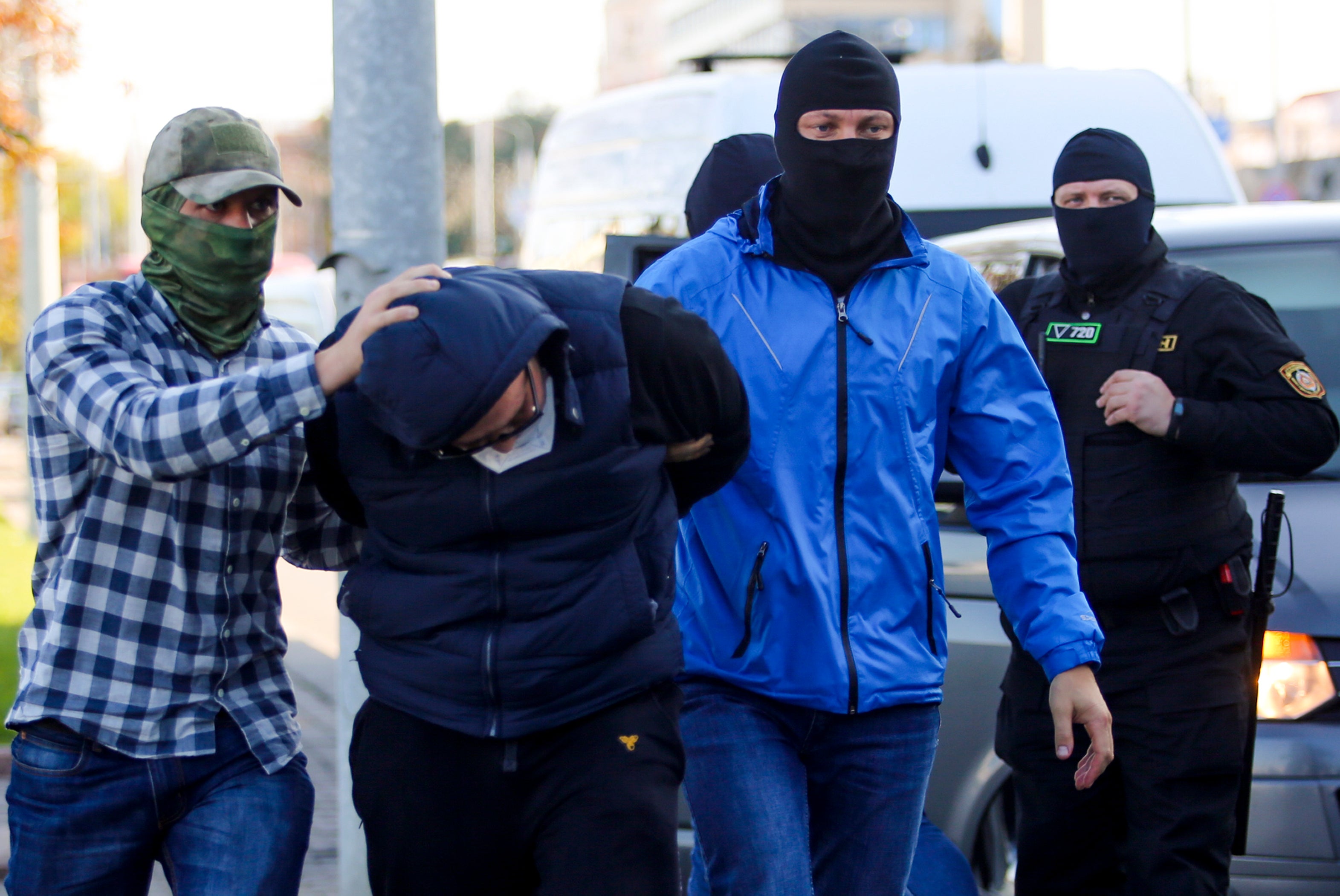Police detain over 400 during Sunday protests in Belarus
Police in Belarus say they detained more than 400 protesters who took part in Sunday demonstrations demanding the resignation of the nation’s authoritarian president following a disputed vote

Police in Belarus said they detained more than 400 protesters who took part in a weekend demonstration demanding the resignation of the nation's authoritarian president following a disputed vote.
With protests rocking the country for more than six weeks, tens of thousands of Belarusians marched through Minsk, the capital, on Sunday, calling for President Alexander Lukashenko to step down after 26 years in power.
Soldiers blocked off the center of Minsk using water cannons, armored personnel carriers and barbed wire.
Protests also took place in several other cities, including Brest, where police used tear gas in an effort to disperse the crowd.
Human rights activists estimated the crowd in Minsk at about 100,000 people. Police, however, said a total of over 20,000 people rallied in cities and towns all over the country.
According to a police statement Monday, a total of 442 protesters were detained on Sunday, including 266 in Minsk. Police said 330 of them remained in custody as they await hearings in court.
Protests began on Aug. 9, after Lukashenko won his sixth term in office in an election opposition supporters and many European governments believe was rigged. Demonstrations have taken place daily since the vote, though the rallies on Sundays in Minsk have been the largest, attracting crowds of up to 200,000 people.
Lukashenko, who has run the ex-Soviet nation of 9.5 million with an iron fist since assuming office in 1994, repressing opposition and independent media, has rejected suggestions of dialogue with the opposition. During the first three days of the protests, demonstrators faced a brutal crackdown, with police using truncheons and rubber bullets to disperse crowds. Several protesters died.
Amid international outrage, Belarusian authorities switched to prosecuting top activists and mass detentions, avoiding large-scale violence. Many members of the Coordination Council that was formed by the opposition to push for a transition of power have been arrested or forced to leave the country.
In response to the crackdown, opposition supporters released personal data of more than 1,000 police officers on Saturday. “No one will remain anonymous, even under a balaclava,” popular opposition blog Nexta Live on the Telegram messaging app said, promising to release more data if detentions continue. Police opened an investigation into the leak.
Sviatlana Tsikhanouskaya, Lukashenko's main opponent in the Aug. 9 election who is currently in exile in Lithuania after fleeing Belarus in fear for her safety and that of her children, has repeatedly condemned the crackdown on the protesters as unlawful.
In a video statement released Monday, she urged law enforcement officers to refrain from “crime and dishonest actions towards your fellow citizens, even if forced by your superiors.”
“Be with the Belarusian people, and the people will not forget that you were on their side,” Tsikhnaouskaya said.
Ales Bialiatski, head of the Viasna human rights group, told The Associated Press that the loyalty of the security forces is crucial for Lukashenko.
“Loyalty of the security forces is critical for Lukashenko's ability to hang on to power,” Bialiatski said Monday. “It is by the hands of these people that large-scale political repression is carried out in the center of Europe.”
___
Daria Litvinova in Moscow contributed to this report.
Bookmark popover
Removed from bookmarks